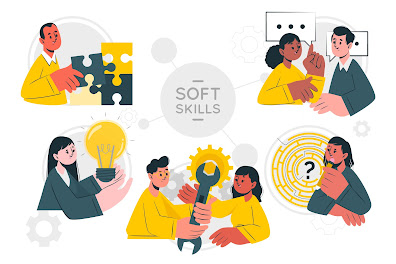Navigating Industry-Specific Challenges in Level 3 Certificate in Assessing Vocational Achievement
Introduction
The Level 3 Certificate in Assessing Vocational Achievement is a commendable journey, but it's crucial to acknowledge that assessing in specific vocational fields comes with its own set of unique challenges. In this blog, we'll explore these industry-specific assessing challenges and delve into strategies for tailoring assessments to meet industry standards.
Understanding Industry-Specific Assessing Challenges
Each vocational field has its own intricacies, demands, and skill sets. Assessors pursuing the CAVA L3 encounter nuanced challenges and require a deep understanding of the industry they are assessing. Here are some common industry-specific challenges:
1. Diverse Skill Sets:
Industries vary widely in terms of required skills. Assessing a candidate's proficiency in healthcare, for instance, involves different skill sets than assessing someone in the construction industry. Adapting assessments to account for this diversity can be challenging.
2. Technology Integration:
Certain industries are more technology-intensive than others. Assessors may encounter challenges in developing assessments that effectively evaluate a candidate's technological proficiency, especially in rapidly evolving fields like IT or digital marketing.
3. Regulatory Compliance:
Different industries operate under distinct regulations and standards. Assessors must navigate these compliance requirements to ensure assessments align with industry norms while also meeting the necessary educational standards.
4. Practical Application:
Some industries place a heavy emphasis on practical skills. Assessors need to design assessments that accurately measure a candidate's ability to apply theoretical knowledge to real-world scenarios, a challenge particularly prominent in fields like hospitality or automotive.
Tailoring Assessments to Industry Standards
1. Collaboration with Industry Experts:
To address the diverse skill sets required in specific industries, assessors should actively collaborate with industry experts. Seeking input from professionals in the field ensures that assessments are relevant and aligned with the current industry landscape.
2. Integration of Practical Assessments:
In industries where practical skills are paramount, incorporating hands-on assessments is crucial. These assessments could simulate real-world scenarios, allowing candidates to showcase their ability to apply theoretical knowledge effectively.
3. Regular Industry Updates:
Given the dynamic nature of industries, assessors must stay abreast of the latest developments. Regularly updating assessments based on industry trends, technological advancements, and regulatory changes ensures the assessments remain relevant and meaningful.
4. Flexibility in Assessment Methods:
Recognizing that different industries may require different assessment methods, assessors should adopt a flexible approach. This might involve a combination of written exams, practical assessments, and professional discussions tailored to suit the specific needs of the industry.
5. Customizing Scenarios to Industry Context:
When developing assessments, assessors should tailor scenarios to the industry context. This not only makes the assessments more engaging but also ensures that candidates can relate the assessment tasks to their future roles.
6. Utilization of Industry-Specific Language:
Industry jargon and terminology vary widely. Assessors should use language and terminology specific to the industry they are assessing to accurately gauge a candidate's understanding and familiarity with industry-specific concepts.
7. Feedback from Industry Practitioners:
Actively seeking feedback from professionals in the industry can provide valuable insights. Industry practitioners can offer perspectives on the relevance and practicality of assessments, helping assessors refine their approach.
Conclusion
Successfully navigating industry-specific challenges in the Level 3 Certificate in Assessing Vocational Achievement requires a blend of adaptability, collaboration, and a deep understanding of the unique demands of each industry. By tailoring assessments to industry standards, assessors contribute to the development of competent professionals who are well-prepared for the challenges of their specific vocational fields. As industries evolve, so must the assessments, ensuring that the Level 3 Certificate remains a benchmark of excellence in vocational achievement across diverse professional landscapes.

.jpg)


Comments
Post a Comment